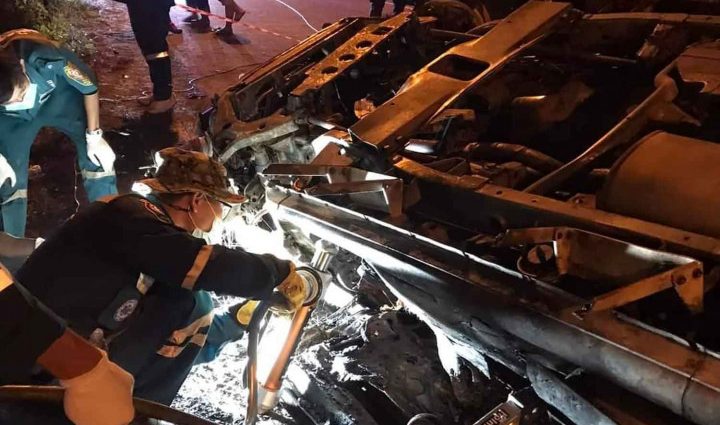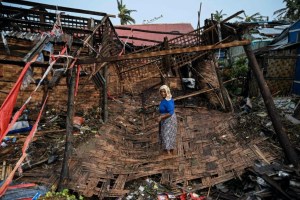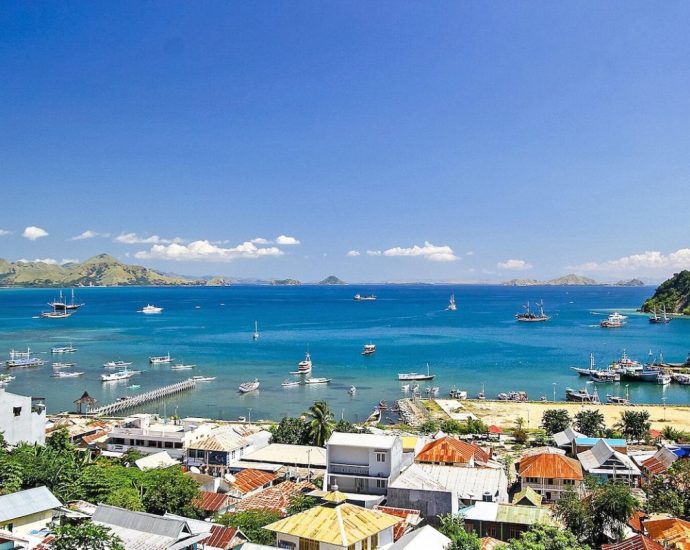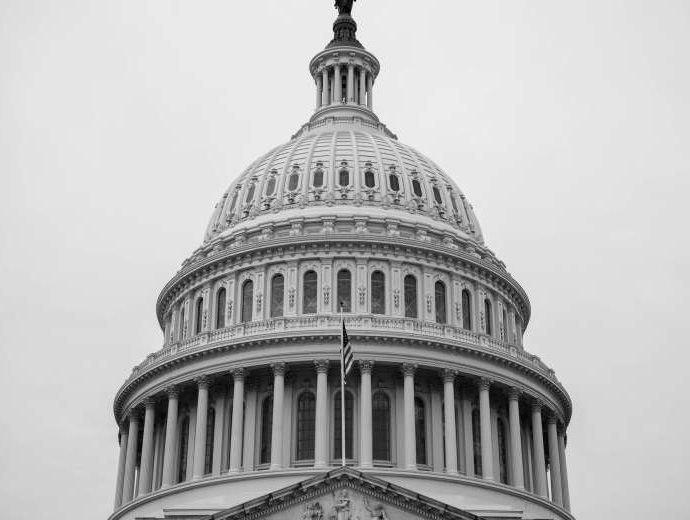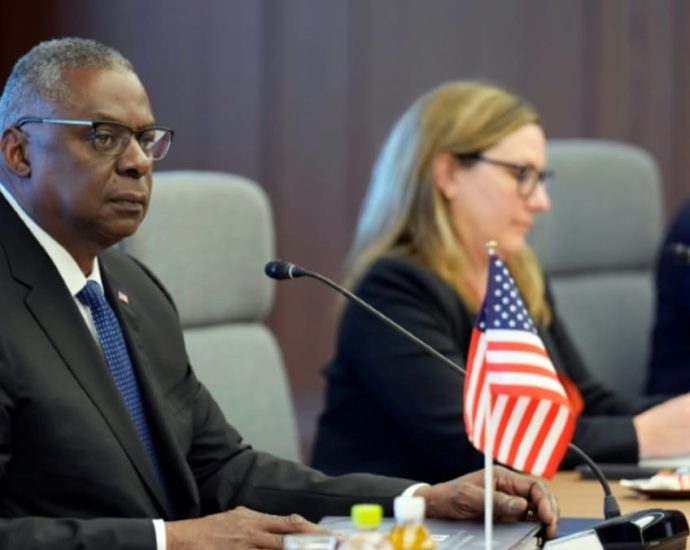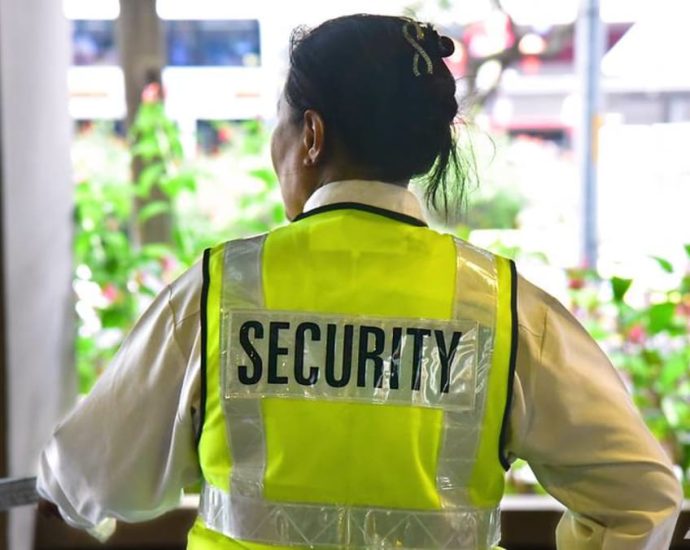Road accident claims 4 lives, injures 6 migrants in Ayutthaya

AYUTTHAYA: Four people were burnt to death in a Bangkok-bound SUV that overturned while carrying migrant workers past Bang Pa-in district at 12.20am on Thursday.
The incident happened on Highway 32 in front of Chiang Rak Noi School in tambon Chiang Rak Noi. The SsangYong Musso SUV, registered in Bangkok, flipped over and went up in flames shortly after residents had heard an explosion.
Six severely injured migrants, comprising three men and three women, managed to escape from the vehicle just before the explosion. They were taken to Wang Noi and Bang Pa-in hospitals.
Four others, including three migrant women and a Thai male driver, died in the fire that engulfed the vehicle.
All of the migrants from Myanmar had illegally entered Thailand, according to reports.
Police assumed the driver was speeding and lost control of the SUV at the location adjacent to Phahonyothin Highway. Witnesses also reported hearing screeching sounds followed by a loud bang.
The land is burning
This year’s scorching heatwave across much of Southeast Asia, which saw daily temperatures soar past 40 degrees Celsius, is incendiary warning of things to come.
Average temperatures have been increasing for decades; Thailand, Myanmar, and Vietnam are among the countries most affected by climate change and global warming this century.
As temperatures rise in a region of over half a billion people reliant for the most part on locally-grown crops such as rice, food production and labor productivity will be severely affected.
The impact on human security will in turn affect socio-economic stability and upset regional relationships. Climate change is already a key driver of conflict in Africa; Southeast Asia is not that far behind.
For the time being, climate change is imposing hardships on people already suffering in conflict zones. Myanmar is considered one of the most vulnerable countries in the world to extreme weather events such as heatwaves, floods and cyclones.
In central Myanmar’s dry zone, determined resistance to military-imposed rule since February 2021 occurs in areas already ravaged by drought and rising average temperatures.
In Sagaing and Magway, increasingly parched regions heavily dependent on agriculture, farmers have been struggling for years to survive. Migration northward and eastward towards China and Thailand has been the main response.
Now, even if people manage to migrate to cities and more developed areas of the central region of Myanmar, scarcity of fresh water and electricity makes existence hard in situations where work must be carried out at times in temperatures above 40 degrees Celsius.
Managing this slow onset of climate change impact has been thwarted by limited state resources and armed resistance to central authorities. This was evident in the wake of Cyclone Mocha, the category five super cyclone that hit Rakhine state in mid-May.
Quite apart from the difficulty of entering affected areas controlled by resistance forces, the UN cited obstacles to providing much-needed aid posed by banking restrictions and the need for Yangon’s travel authorization.
Although detailed information and data is scarce, Myanmar may be the first country in Southeast Asia to see the debilitating nexus between climate change and conflict impact human security severely.

Elsewhere in the region, this year’s excessively hot dry season brought with it economic and health problems: the combination of high temperatures and air pollution from the burning of crop stubble affected the health and residents in Northern Thailand and depressed the critical tourist industry.
In Chiang Mai, the air quality index measuring particulate matter (PM 2.5) remained above 300 for two weeks from the end of March— 20 times above the upper limit recommended by the World Health Organization.
As a result, hotel occupancy was running below 50% in a traditionally high season for tourists and more than two million people were reportedly treated in hospitals for respiratory effects.
While the difference with Myanmar is that there is no paralyzing internal conflict, studies point to the appearance of local tensions – between urban residents affected by the pollution and provincial agrarians accused of the crop burning.
Ahead of a general election in mid-May, the Thai government mobilized to order people in the worst affected areas to work from home and reached out to neighboring countries to see about reducing crop stubble burning.
These moves will become routine in the region as climate change impact intensifies every year. But the question is how well prepared are regional governments for more serious social and economic fallout – and what needs to be done to help the region more effectively respond?
Perhaps the tools of dialogue and mediation can be helpful.
In conflict zones like Myanmar, as in parts of Africa, where governance is impaired by conflict, it will be important to help communities help themselves.
But even as top-down solutions are out of the question, the severe impediments imposed on local civil society and welfare organizations make it hard to extend help and advice to affected communities.
In Myanmar, the UN notes there is “a high risk that natural disaster relief – in the case of, for instance, cyclones, flooding and drought – will be undermined or be used as an oppressive political tool, with the military preventing humanitarian organizations from helping affected populations.”
To cope with the worsening situation, international aid agencies are urged by experts to tap into local civil society networks, especially in conflict areas. In more stable areas, where government and civil society operate unimpeded, there are still significant challenges to managing the situation.
Blame for environmental degradation is easily placed on vulnerable groups in society. Data-sharing is a major obstacle between states in a region where sovereignty is a barrier to cooperation. Deep mistrust and misalignment between state structures and civil society make for slow progress on designing effective coping strategies and policies.
Perhaps the biggest challenge of all will be managing climate change displacement. Whether voluntary, forced or planned, and although not so evident today, large-scale movement of people will soon become a feature of the region’s response to climate change.

Natural disasters displaced almost 8 million people in Indonesia, Myanmar, Vietnam and the Philippines in 2021, according to the Internal Displacement Monitoring Centre in Geneva. The World Bank estimates that between 3.3 and 6.3 million people will be displaced by climate change in the Lower Mekong region between now and 2050.
Strong government structures in some countries will help ensure that planned re-location can be arranged. The bigger challenge will be cross-border migration that impacts labor and other human rights, for which inter-state monitoring and arrangements will be needed.
In sum, given that rising temperatures and drought, not to mention the rapid onset of extreme weather events, are already taking a toll on human security in the region, more organized and institutional anticipation and planning needs to be broached both at the national and inter-state level.
Relying on international agencies and global initiatives won’t necessarily generate responses well-tailored to the region or address the specific constraints on cooperation. Rather, a more concerted minilateral approach is urgently needed.
Michael Vatikiotis is Senior Adviser at the Centre for Humanitarian Dialogue.
Australian soldier loses landmark defamation case

Australia’s most-decorated living soldier Ben Roberts-Smith has lost a historic defamation case against three newspapers which accused him of war crimes in Afghanistan.
The Australian newspapers were sued over several articles which also said he had bullied peers and punched a woman with whom he was having an affair.
It is the first time in history a court has assessed allegations of war crimes by Australian forces.
The judge said the lengthy civil trial had proved the murder allegations – denied by Mr Roberts-Smith – were substantially true.
Mr Roberts-Smith has not been charged over any of the claims and no findings have been made against him in a criminal court. He was not in court for Thursday’s judgement.
This breaking news story is being updated and more details will be published shortly. Please refresh the page for the fullest version.
You can receive Breaking News on a smartphone or tablet via the BBC News App. You can also follow @BBCBreaking on Twitter to get the latest alerts.
Shangri-La 2023: ASEAN rallies for regional stabilityÂ

Asia’s leading defense conference, the Shangri-La Dialogue, is set to take place in Singapore from June 2 to 4. The event provides a semi-formal discussion space in the context of the recent gap in multilateral dialogue on defense and security.
The gathering is also a great opportunity for the member countries of the Association of Southeast Asian Nations to reaffirm their role in resolving emerging interwoven crises. ASEAN will also need to consider what else it can do to continue maintaining its central role in the regional security structure.
Resolving interwoven crises
The 42nd ASEAN Summit, held in May, ended impressively with the image of regional leaders clasping hands on a boat on the shores of the Indonesian island of Labuan Bajo, as a reminder that ASEAN countries are standing together on the same boat and facing common challenges.
At that conference, Vietnamese Prime Minister Pham Minh Chinh emphasized that after more than half a century of establishment and development, ASEAN has never been in such a good position, even while facing many challenges as it does now. ASEAN is the focus of a series of regional connectivity initiatives and at the same time, it is the focus of intense strategic competition among major powers.
The results of the top-level discussions show the focus on strengthening intra-ASEAN solidarity and enforcement measures. If ASEAN has become more introspective, it is the result of concerns about the unpredictable spiral of geopolitical competition between great powers. The defensiveness in ASEAN’s policy is becoming more and more obvious as regional countries prioritize economic cooperation with one another.
Southeast Asian have responded in various ways to challenges presented by the global energy, food, and semiconductor crises, the risk of deflation, and slow recoveries after the Covid-19 pandemic.
Indonesia and other Southeast Asian nations are focusing on internal consolidation, promoting the development and sharing of green energy, building the ASEAN electricity network, and connecting the intra-regional payment network.
Singapore appears enthusiastic about this initiative, while Cambodian Prime Minister Hun Sen is also lobbying Vietnam to support the construction of an undersea transmission line to supply Singapore.
In addition, Malaysia and Vietnam support the modernization and connection of Southeast Asia’s seaport network, the electric-vehicle ecosystem, and other initiative to create new impetus for intra-regional trade and investment.
These efforts show how ASEAN member states are joining hands to deal with challenges and become an important factor to join the world in solving today’s intertwined crises.
Easing tension in South China Sea
If years-long tension between Ukraine and Russia directly sparked the ongoing war there, many experts believe that the situation in the South China Sea and Taiwan is a powder keg that can explode at any time.
This year’s Shangri-La Dialogue is an opportunity for the US and China to have high-level contact to reduce tensions, but it may be missed amid the deterioration of relations between Beijing and Washington. Some observers think that China may send a military delegation to the Dialogue.
China is becoming more and more aggressive with such activities as illegally encroaching on the waters of neighboring countries, increasing militarization of rocky islands, and rapidly increasing its naval power.
There are reports that China is deploying nuclear submarines in the South China Sea, or East Sea as it is designated by Vietnam, causing deep concern to countries in the region. China is also the party promoting confrontations that reach extremely dangerous thresholds with the US Air Force and Navy in the South China Sea. Any mistake could spark a conflict between the two superpowers.
Recently, for various reasons, the leaders of the Group of Seven industrialized countries, having just met in the Japanese city of Hiroshima, said they hoped to have a “constructive and stable relationship” with Beijing. This leads optimists to believe that the East-West confrontation will cool down so that Europe can focus on Russia.
However, it should be noted that the G7 also warned China about its “militarization activities” in the Asia-Pacific region. Therefore, conflicts between the parties in the military field will be difficult to cool down in a short time.
Therefore, in order for this year’s Shangri-La Dialogue to make a substantial contribution to the process of resolving the East Sea issue, ASEAN countries need to affirm the bloc’s stance on handling disputes through negotiation on the basis of compliance with international law, including the United Nations Convention on the Law of the Sea (UNCLOS), contributing to building peace, stability and development in the region.
Through multilateral dialogue as well as promoting the completion of a Code of Conduct (COC), ASEAN and its member states must play a central role in resolving the South China Sea issue, rather than as a third party.
Given that the South China Sea issue is subject to major-power involvement and overlapping calculations among the parties, ASEAN needs more than statements about the bloc’s central role in resolving the issue.
Vietnam is said to be a textbook example of successful hedging, balancing relations with China and the US as well as with Russia, without angering any country. Even as the US is eager to establish a comprehensive strategic partnership with Hanoi, Vietnamese leaders still have a delicate way of handling it while not making its giant neighbor China uncomfortable.
An interesting detail to supplement this point of view is that Prime Minister Pham Minh Chinh affirmed that he “did not choose sides and only chose peace and justice” during his brief meeting with Ukrainian President Volodymyr Zelensky on the sidelines of the G7 Summit in Japan recently.
This also would have been noted by Dmitry Medvedev, vice-chairman of the Russian Security Council during his visit from May 22-23 to Hanoi shortly afterward.
It should be noted that not every country in the region has been able to hedge as successfully as Vietnam. The rapid foreign-policy reversal of President Ferdinand Marcos Jr’s administration in the Philippines in cooperating with the US has caused some concern both at home and abroad.
By contrast, the G7 Summit agreed to put Vietnam on the list of priority countries for cooperation, though the G7 member countries were its former enemies.
This weekend’s Shangri-La Dialogue will still revolve around geopolitical competition between the US and China. At the same time, this event is also where the superpowers attempt to gather forces by listening to and responding to calls from stakeholders.
This means a lot to ASEAN member countries after the 42nd ASEAN Summit in May focused deeply on internal issues, to be able to give voice, perspective, and solutions to global and regional problems.
The quiet committee keeping China investment at bay
A Chinese private equity firm, Primavera Capital Group, in May acquired the well-known test preparation company Princeton Review and an online learning platform, Tutor.com.
The move, like other Chinese investments in tech and those that deal with personal information, is increasingly drawing the attention of politicians, the US government and national security experts – especially as tensions rise between the US and China.
What remains unclear, however, is if this seemingly routine business acquisition was reviewed by the Committee on Foreign Investment in the the US, which has authority to examine transactions involving foreign investment.
The committee is largely prohibited from publicly disclosing any information filed with it, including whether it is reviewing a transaction or whether one was referred for review.
While the committee is hardly a household name, its mission and its expanding oversight have important implications for the US economy and national security.
Government oversight

The Committee on Foreign Investment, a US government interagency committee established in 1975 by President Gerald Ford, is tasked with studying and coordinating the implementation of policy on foreign investment in America.
Investment by foreign countries greatly benefits the US, supporting 10.1% of the total labor force in 2019. Yet, beginning in the 1980s, the federal government grew increasingly concerned about potentially harmful effects of foreign investment in the US. For example, if a foreign firm gets control of sensitive technologies, it could hurt national competitive advantages or even threaten national security.
The primary objective of the committee is to review selected foreign investments and some real estate transactions by foreigners in the US for their national security implications. Real estate transactions are generally scrutinized only when a transaction involves land that is either close to a military base or near an airport or seaport.
Vetting foreign investments
In the 1980s, political concern grew about Japanese investment and, specifically, the proposed purchase by Japanese computer giant Fujitsu of chipmaker Fairchild Semiconductor. Semiconductors were considered a sensitive industry, with potential defense applications, so the purchase prompted Congress in 1988 to pass the Exon-Florio amendment to the Defense Production Act of 1950.
This amendment empowered the committee not just to review foreign investment deals but also to recommend rejecting them. Acting on its recommendation, a US president could block a foreign transaction on “national security” grounds.
For instance, in 1990, President George H W Bush voided the sale of MAMCO Manufacturing, which made metal parts for airplanes, to a Chinese agency, ordering the China National Aero-Technology Import & Export Corporation to divest itself of the Seattle-based company.
In the context of a committee review, the term national security typically refers to foreign transactions that could cause significant outsourcing of jobs, a loss of control over agricultural supply chains, the sharing of sensitive technologies, control of a firm that satisfies defense needs, or the impairment of critical infrastructure.
Strengthening the committee
In 2006, Dubai Ports World, owned by the United Arab Emirates government, was about to gain managerial control of six US ports in a major deal. Because of terrorism-related concerns, Senator Chuck Schumer led a campaign against this proposal and the transaction was eventually called off, even though it had initially been approved by both the committee and President George W Bush.

In the aftermath of this controversy, lawmakers passed the Foreign Investment and National Security Act in 2007, giving Congress greater oversight of the committee to ensure that potential acquisitions were adequately reviewed. In addition, it required the committee to scrutinize any foreign investment deal in which the pertinent overseas entity is either owned or controlled by a foreign power.
National security concerns
Over time, the Committee on Foreign Investment has been given more power to reflect and act on the political and economic concerns of the US.
China, for example, appears to have global ambitions to replace the US-led world order. As it gains geopolitical power, China has come under increased scrutiny by the US, with public support for getting tough with China on economic issues. In response to these concerns, concrete steps have been taken by US lawmakers to increase the scope of what the committee is able to do.
In 2018, then-president Donald Trump signed the Foreign Investment Risk Review Modernization Act, giving the committee new powers over certain types of foreign investment that affect many Chinese investors. In the two-year period after the passage of the act, transaction registrations from Chinese investors fell by 43%.
In 2022, President Joe Biden signed an executive order directing the committee to sharpen its investigation of foreign investment deals that could negatively affect cybersecurity, quantum computing, biotechnology and sensitive data.

The Committee on Foreign Investment is now more powerful than it has ever been, and it is a gatekeeper on major foreign investment deals.
The US is not alone in examining foreign investment deals for national security implications. In recent times, the United Kingdom, the European Union and Australia have either created or strengthened existing regulations to police with greater care foreign investment deals, particularly those originating in China.
It remains to be seen what the long-term implications of these expanding powers of the Committee on Foreign Investments in the US will be.
Amitrajeet A. Batabyal is a distinguished professor, the Arthur J Gosnell professor of economics and interim head of the Department of Sustainability at the Rochester Institute of Technology.
This article is republished from The Conversation under a Creative Commons license. Read the original article.
Seatrium says CPIB probe relates to events that ‘occurred prior to 2015’
In March this year, Seatrium announced that its wholly-owned Brazilian subsidiary, Estaleiro Jurong Aracruz, was being investigated for “alleged irregularities” over its practices. Seatrium said later that month that the proceedings relate generally to “past conduct investigated by the Brazilian authorities in connection with Operation Car Wash”. However, on AprContinue Reading
‘Unfortunate’ that Chinese counterpart declined talks: Austin
“You’ve heard me talk a number of times about the importance of countries with large, with significant capabilities, being able to talk to each other so you can you can manage crises and prevent things from spiralling out of control unnecessarily,” Austin said. Recent “provocative intercepts of our aircraft andContinue Reading
Moment climber is rescued from Everest âdeath zoneâ
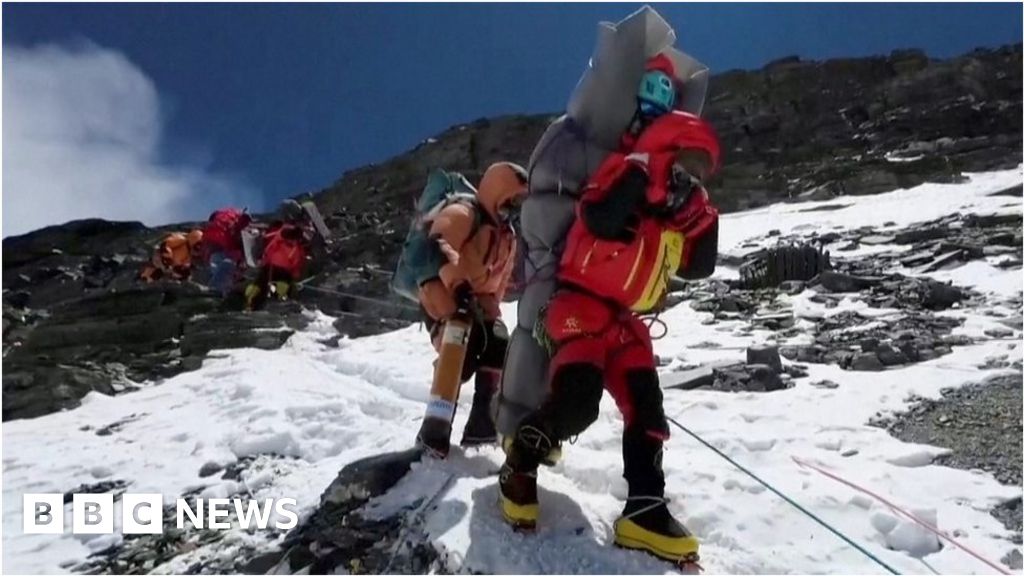
Nepali guide Gelje Sherpa found a Malaysian climber shivering and clutching a rope in the area of Mount Everest called the “death zone”, where temperatures can dip to -30C.
He carried the climber down from 8,500m above sea level over the course of six hours, in what has been described as a “very rare” high-altitude rescue.
China reaching for biotech breakthroughs in space
Three Chinese astronauts will conduct five life-science experiments within the next five months following the spacecraft Shenzhou-16’s successful docking with China’s Tiangong space station on Tuesday.
Three experiments will look into how stem cells, plant hormones and protein formation are affected by the microgravity environment while two others are aimed at discovering how nematodes, or roundworms, are hurt by gamma rays in space and how the damage can be measured through biomarkers.
The experiment kits have a total volume of 95 liters and weigh about 23.6 kilograms, said the Chinese Academy of Sciences (CAS). The experiments are aimed to provide information that will allow for astronauts to stay in space for longer periods of time, it added.
Chinese scientists and state media explained the goals and challenges of the five experiments on Tuesday and Wednesday.
A protein formation experiment, led by CAS Academician Zhao Yufen, will be conducted for the first time in space to try to ascertain whether life on Earth was created domestically or brought from elsewhere.
“Different enzymes play their roles during the formation of protein – but how was it done before life was created?” Liu Yan, an associate professor at the College of Chemistry and Chemical Engineering at Xiamen University, explained to the China Science Daily on Tuesday.
“We want to find out how the three most important life elements – amino acids, nucleotides and phosphate groups – will work together in the microgravity environment in the space station.”
In the formation of protein, the genetic codes on DNA are transferred to a messenger RNA (mRNA) in a process called transcription, which can be accelerated by enzymes, according to Nature.com. Following the sequence on mRNA, amino acids can be linked together to become a polypeptide in a process called translation. Polypeptide then becomes protein.
Astronauts in the space station and scientists on Earth will run the same transcription and translation processes without enzymes simultaneously to see whether gravity plays a role in life creation. The other two gravity and two gamma ray experiments are more common and straightforward.
A team led by Cai Weiming, a researcher of the CAS Center for Excellence in Molecular Plant Sciences, will test whether Arabidopsis (thale cress) seeds will grow differently in the first 10 days of their bud stage with and without gravity. Before this, the first batch of Arabidopsis seeds were already sent to the space station by Shenzhou-15 last November.

With the gravity on Earth, plant hormones can guide the roots to grow downward toward water. Scientists want to know how plant hormones will work without gravity.
Similar experiments about plant gravity perception have been done by Western astronauts, according to NASA’s website.
Another team led by Long Mian, a researcher at the CAS Institute of Mechanics, sent liver and endothelial stem cells to the space station to see whether they will grow differently in the microgravity environment.
A team led by Sun Yeqing, a professor at the Dalian Maritime University, will manage two experiments involving nematodes.
“Nematodes are widely used in life science research as their genes have a certain homology with the human genome,” said Zhao Lei, an associate professor at the Dalian Maritime University. “We use nematodes to study the mechanism of biological effects of space radiation and look for biological markers for space radiation measurement.”
One of these two experiments is aimed at checking how nematodes can repair their DNA and reproduce themselves while exposed to gamma rays. Similar experiments have been done before in space.
Another experiment will be conducted to measure the radiation damage suffered by nematodes and the associated relevant biomarkers, which will help astronauts improve their protection from radiation in the future.

“Nematodes are cultivated in a solution but they are not dormant,” said Cang Huaixing, a chief researcher for the space station’s scientific experiments at the Technology and Engineering Center for Space Utilization under the CAS.
“They can only be brought from the laboratory to the rocket platform seven hours before the launch, and from the platform to the spacecraft five hours before the launch.”
On Tuesday morning, the Shenzhou-16 manned spaceship carrying three Chinese astronauts, namely Jing Haipeng, Zhu Yangzhu and Gui Haichao, and their experiment kits was successfully launched.
After entering orbit, the spaceship docked with the space station. The Shenzhou-16 crew will rotate with the Shenzhou-15 crew in orbit.
Apart from life science experiments, the Shenzhou-16 crew will also conduct more than 50 in-orbit tests and experiments on space science and application payloads, Chinese media reported.
They will study novel quantum phenomena and high-precision space time-frequency systems, as well as teach a space class to students back on Earth.
Read: China’s first Mars rover may sleep forever
Follow Jeff Pao on Twitter at @jeffpao3
Should security officers wear body cameras to deter abuse?
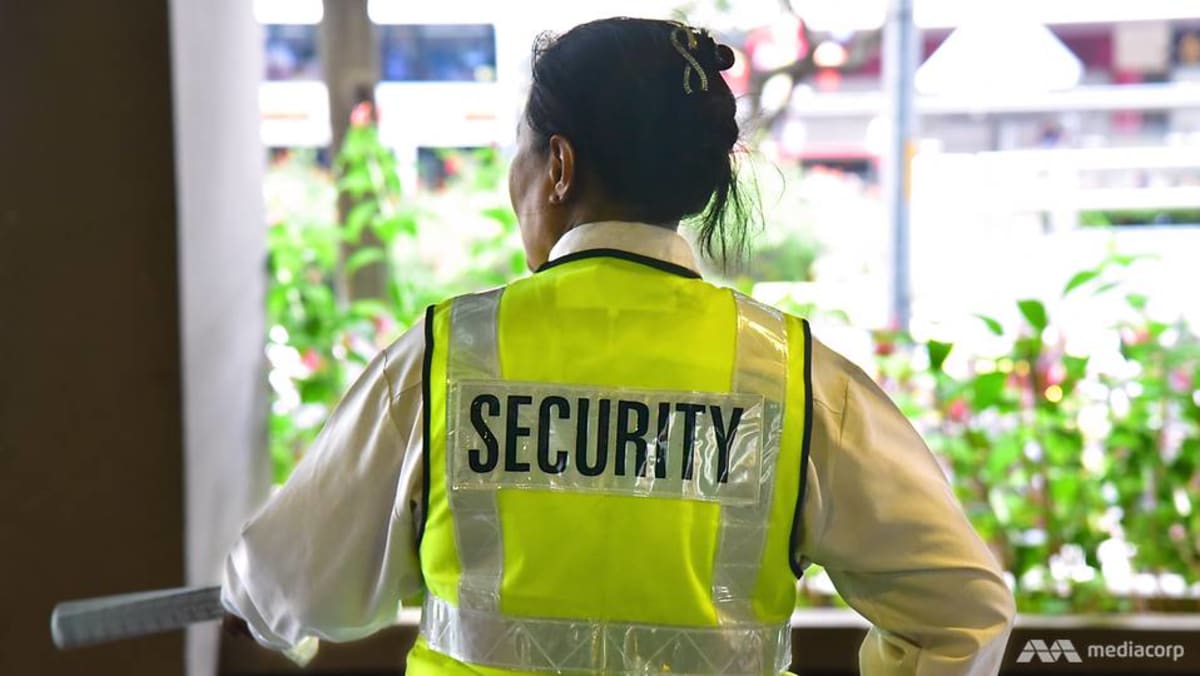
He added that there are other ways to use the technology. He gave an example of a security agency that was tasked to protect a statue that did not have any barriers as the intention was for it to be looked at up close.
To manage the possibly of damage, the security firm put cameras around the statue that activated an automated warning if visitors got too near.
People tend to be more open to hearing warnings from an automated voice instead of from a security officer, Mr Thomas said.
“He (a security officer) may be trying to be a bit more firm. People may take offence to that,” he said.
THE FUTURE OF THE SECURITY JOB
The industry can do away with security officers having to conduct patrol on foot, Mr Thomas said.
Instead, CCTVs with video analytics can replace this aspect of the job, he said.
“(Video surveillance work) 24 hours. It doesn’t get tired. It’s perpetual, and security officers then become response personnel instead of being the enforcers on the ground,” he said.
For this to happen, customers engaging security services have to change their mindsets, Mr Thomas noted.
“They have to be prepared to accept that a CCTV looking at an entrance or an exit can actually do a better job than a security officer,” he said.

